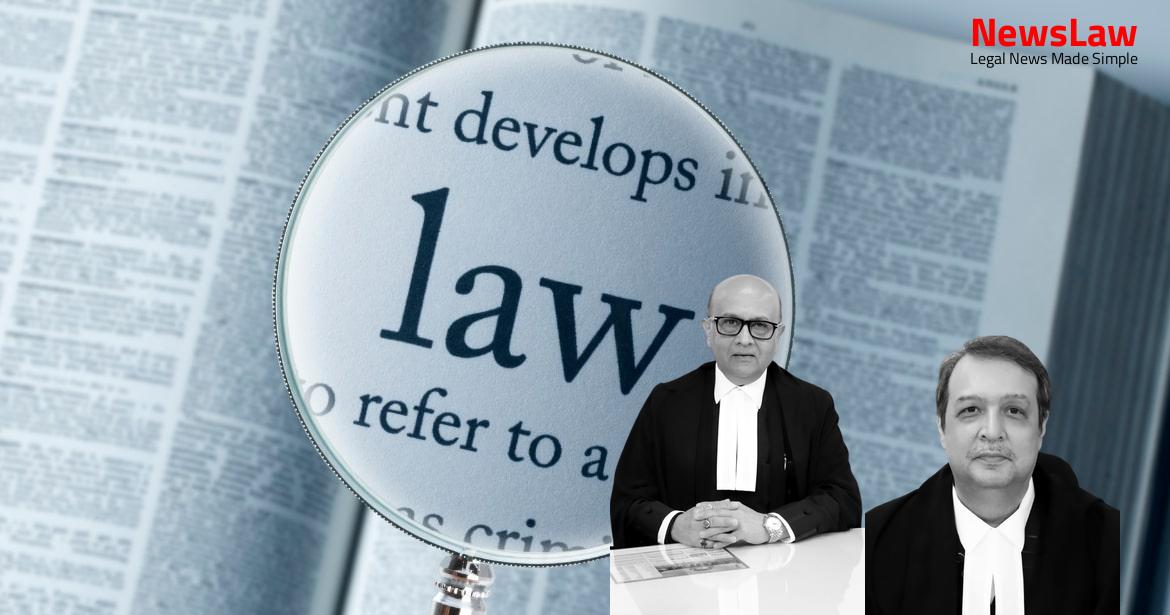In a significant ruling by the Supreme Court Of India, a key decision has been made regarding a time-barred arbitration claim related to a Memorandum of Understanding dated 1 June 2004. The case involves vital legal considerations and implications for the parties involved in the matter. Stay updated for the detailed analysis and insights on this landmark judgment by the highest court in India.
Facts
- On 7 May 2011, fifteen cheques worth Rs. 7.30 crores were presented by the petitioners but allegedly dishonoured.
- Legal proceedings under Section 138 of the Negotiable Instruments Act 1881 were initiated against the respondents.
- An order of acquittal was granted by the Magistrate on 23 July 2018.
- Proceedings are currently ongoing before the High Court of Bombay in appeal.
- The Memorandum of Understanding (MoU) forming the basis of the petition was executed on 1 June 2004.
- Cheques were provided to the petitioners during negotiations for repayment.
- A supplementary MoU was signed on 2 August 2006 detailing repayment terms and settlement of dues.
- The respondents agreed to lien their property and issue cheques for financial support.
- One of the respondents, also a director of the first respondent, represented TNL – a company incorporated in India.
- The petitioner, an entity from the United Arab Emirates, funded a telecommunication project for Telesuprecon Nigeria Limited (TNL) based on the MoU terms.
Also Read: Scheduled Castes Reservations: Sub-Classification Dispute
Analysis
- The court’s examination involves primary review of uncontested facts to determine if claims are time-barred and dead.
- Courts must refrain from appointing an arbitrator when claims are ex facie time-barred and dead.
- Intervening only within a limited compass to protect the effectiveness of the arbitration process.
- Determining whether a claim is time-barred usually falls within the arbitral tribunal’s domain.
- Notices invoking arbitration issued 11 years after the cause of action clearly indicate time-barred claims.
- Courts have a duty to protect parties from being compelled to arbitrate when claims are barred by limitation.
- Courts can reject ex facie non-arbitrable or dead claims under Section 11(6) to prevent drawn-out arbitration processes bound to fail.
- The claim in question is hopelessly barred by the three-year limitation period.
- Precedent affirms that the initiation of proceedings under Section 138 does not imply a ‘continuing cause of action’ for initiating arbitration.
- Arbitration and criminal proceedings under Section 138 are separate and independent proceedings stemming from different causes of action.
- Court must exercise interference at this stage due to the facts of the present case
- Referral to arbitration would compel parties to arbitrate a time-barred claim
- The claim is considered ‘deadwood’ as it is ex-facie time-barred
Also Read: Case Summary: Bar Council of India vs. State Bar Councils
Decision
- Arbitration Petition No. 15 of 2023 has been dismissed.
- The claim is found to be ex-facie barred by limitation.
- The Arbitration Petition under consideration is dismissed.
- Pending applications, if any, are disposed of.
- The present case has a MoU dated 26th May 2004, which differs from the mentioned case.
Also Read: NEET (UG) 2024 Examination Integrity Case: Supreme Court Verdict
Case Title: ELFIT ARABIA Vs. CONCEPT HOTEL BARONS LIMITED (2024 INSC 536)
Case Number: ARBIT.PETITON No.-000015 – 2023



